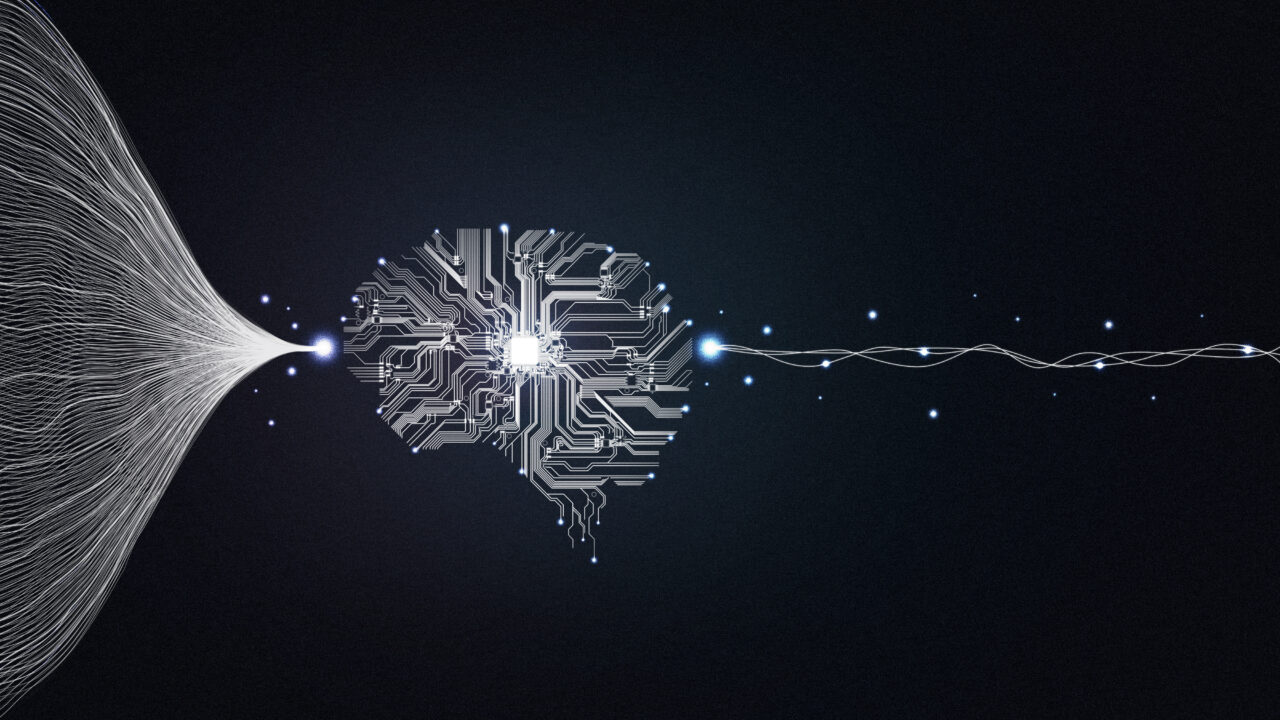There’s Already Too Much Information. AI Will Make Things Worse
Proponents argue that artificial intelligence will solve the world's problems, but it seems more likely it will only exacerbate them in search of profit. Image: Adobe
Image: Adobe
Back in 2009 I wrote a piece entitled “The unbearable lightness of information.” Since then the information economy has become ever more resource intensive. Examples include Bitcoin, the widely recognized digital-only currency, which, as it turns out, consumes about as much electricity as the nation of Norway each year. (Why a currency with no physical bills should weigh so heavily on the energy system is explained in the same linked piece.)
Data centers and data transmission networks account for between 2 and 3 percent of global electricity consumption. Think of all the things in the world which use electricity, and you’ll see why this share for this one facet of society is such a large chunk.
While the telecommunications industry is becoming more efficient in its energy use, total energy use continues to expand. The emerging 5G system uses three times more energy than 4G. Between 2020 and 2026 network energy needs are expected to increase 150 to 170 percent. So much for the information economy being light on resources!
While the telecommunications industry is becoming more efficient in its energy use, total energy use continues to expand.
Now come reports that Microsoft is planning on building small modular nuclear reactors to power its artificial intelligence (AI) plans. That might be better than burning more fossil fuels. But the energy for AI is currently being provided primarily by fossil fuels because that’s where the world continues to get the vast majority of its energy. It turns out that new nuclear power dedicated to AI development is for now just a dream and unlikely to become a reality anytime soon.
I know proponents of AI are telling us how it is going to revolutionize our life by, among other things, making diagnosis and treatment of disease easier; spotting all manner of trends to help businesses, government, educational institutions and individuals make better decisions; and generating text for myriad purposes both mundane (think: instruction manual) and creative (think: movie script).
In between all that other work I hope AI can solve global warming and the polycrises accompanying it including energy, resource, soil and water depletion; toxic chemical pollution; and biodiversity loss.
I don’t actually think AI will be much used for such purposes as it will be more profitable to use it to increase the production of all sorts of consumer goods; think of new toxic chemicals to introduce into commerce; and increase the exploitation of all sorts of natural resources needed to expand the aforementioned production of consumer goods including new toxic chemicals.
The one thing that AI will almost certainly NOT do is bring about a fair, orderly and dramatic reduction in resource use by human society—an absolute necessity if we are going to avoid the seemingly inevitable society-wide collapse in store for us as we continue our exponential economic growth and the resource depletion and climate change that will accompany it. Meanwhile, AI will devour ever more resources for itself.
I called the weight of the information economy on the physical world “unbearable” 14 years ago. Now that weight is becoming crushing. We are on a trajectory to make ourselves capable of downloading and sending vastly larger amounts of data wirelessly using our cellphones for fun and profit—wired networks are 10 times more efficient at sending data—while it becomes harder and harder to supply clean water, adequate food and basic services because of both climate change and resource depletion.
AI will almost certainly on balance aggravate these negative trends and likely make them much worse.
Your support matters…Independent journalism is under threat and overshadowed by heavily funded mainstream media.
You can help level the playing field. Become a member.
Your tax-deductible contribution keeps us digging beneath the headlines to give you thought-provoking, investigative reporting and analysis that unearths what's really happening- without compromise.
Give today to support our courageous, independent journalists.






You need to be a supporter to comment.
There are currently no responses to this article.
Be the first to respond.